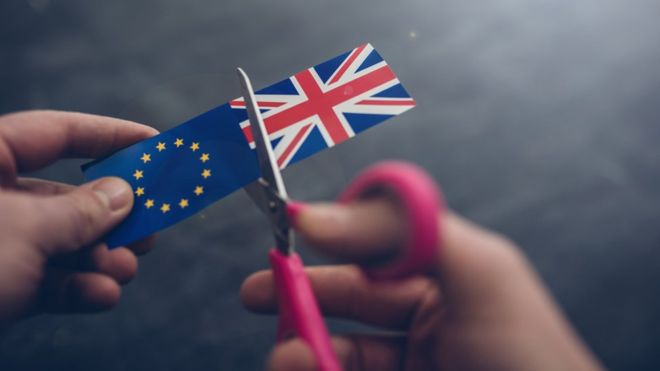EurActiv (17 September 2019)
Polish Commissioner Elżbieta Bieńkowska will relinquish the reins of EU industrial policy to France’s Sylvie Goulard on 31 October. Ahead of the changeover, she looked back on her time in office and discussed the challenges facing her successor, including her beefed-up portfolio.
Jean-Claude Juncker entrusted Bieńkowska with the hefty Internal Market, Industry, Entrepreneurship and SMEs portfolio in 2014. Notable achievements under her watch include tweaks to public procurement and successes in the space sector.
At the start of her mandate, the directorates-general for internal market and enterprise (DG MARKT and DG ENTR) merged into DG GROW and Juncker tasked her with upping industry’s contribution to the economy from 16% to 20%.
Depending on what factors are used to define ‘industry’, its share ranged from 17.3% to 20.7% for the EU27 in 2018. The lack of significant progress has prompted EU capitals to ask the Commission to draft an overarching industrial strategy for 2050 by the end of the year.
Bieńkowska’s services are currently working on the text. The Polish Commissioner told EURACTIV that “I wanted a document that responds to all the needs of European industry. We will have that.”
The Juncker Commission already proposed an industrial policy strategy in late 2017, which included a focus on cybersecurity, circular economy and big data. But Bieńkowska said that the sector is so broad “you can’t just rely on ‘Strategy 1’”.
She added that working on internal market and services matters “is much more difficult than talks on defence cooperation”. Bieńkowska said she is confident that “the next Commission will be able to propose a short document based on what we’re preparing”.
EU industrial policy under the spotlight as elections loom
As the EU gears up for a big refresh after May’s elections, there is growing consent among business leaders that incoming policymakers should refocus attention and resources on industrial policy, particularly in the continent’s most valuable sectors.
It will indeed be up to her successor, Sylvie Goulard, to dot the ‘i’s and cross the ‘t’s. In her mission letter, President-elect Ursula von der Leyen said the incoming French Commissioner should add to the strategy and make sure the EU economy is on track to meet the bloc’s pending climate-neutrality goal.
The 2050 strategy “should cover all aspects that affect industry and its competitiveness, from investment and public procurement to trade, skills, innovation and supporting small and medium-sized businesses (SMEs)”, the letter explains.
Asked if she will share any advice with Goulard before leaving office, Bieńkowska said her French successor is “experienced enough already”. She did urge Goulard though to continue a culture of transparency where ministers are kept informed of what is going on.
Von der Leyen assigns defence challenge to France
France’s former defence minister, Sylvie Goulard, has been proposed as the EU’s internal market Commissioner. But her new portfolio also includes a strengthened European defence file, which analysts say will be her biggest challenge.
Goulardean task
During a briefing with journalists last week, Bieńkowska acknowledged that Goulard’s challenge might be even greater than her own, given that “the portfolio will be even bigger now”.
That is because the Frenchwoman will also oversee the communication directorate and the newly created directorate-general for defence and space, if she clears the final hurdle and wins the European Parliament’s approval.
Setting up a new DG dedicated to military and extra-planetary matters has long been rumoured and Bieńkowska revealed that it has been in the pipeline for the last 18 months.
Asked if the new department is ready to launch, she said that “in three months time, it won’t be a problem to get it operational. Recruitment and know-how from member states is needed. But the separation of the DG is not a problem.”
Currently, two units of DG GROW employ 48 officials on defence, while more than 300 are involved with space policy. “Seconded experts from the member states will be needed because the knowledge doesn’t exist in the current Commission,” the outgoing Commissioner added.
Blast-off: Europe’s place in the space race
Space exploration and exploitation has traditionally been the domain of the Americans and Russians. But Europe is in the mix too, from building the machines that put satellites in orbit to harbouring dreams of mining asteroids. Here’s what the future holds.
The space division of the new DG will hope to benefit from a war chest of €16 billion proposed under the EU’s long-term budget for the next seven years, the multiannual financial framework (MFF).
EU-developed global positioning system Galileo stands to get €9.7 billion; it recently reached the milestone of one billion smartphone users and its satellite constellation is due to be completed in 2020.
Its earth-observing cousin Copernicus is now fully operational and will get €5 billion under the MFF. Bieńkowska pointed out that the system’s climate action capabilities will only escalate in importance in the coming years.
National governments have asked to activate the satellite system numerous times in the past few years, in order to track blazes and help firefighters get ahead of often deadly infernos.
The Polish official insisted that “the sky is the limit” for how so-called space data is used, adding that between 6% and 9% of European companies now use it in some form. Asked about the “very natural link” between space and defence, Bieńkowska replied that roughly 95% of defence capabilities use space-based data.
Growing interest in the sector means that inter-institutional relations will need to be managed. Space policy has been under the remit of the Commission since the signing of the Lisbon Treaty but ties with the European Space Agency (ESA) still need to be cultivated.
Bieńkowska acknowledged that the relationship is “a complex issue”, given that non-EU members can participate in ESA matters, and that a clear division of tasks between the EU executive and the agency needs to be made.
Tensions came to a head earlier this year when it became clear that ESA had protested against the Commission’s proposal to rename the European Global Navigation Satellite Systems Agency as the European Union Agency for the Space Programme.
ESA complained the new name for the Prague-based agency would cause confusion due to its similarity to its own moniker. In April, EU negotiators reached a partial agreement on the space programme proposal, which still includes the name change.
Further talks are expected on the still-outstanding issues once broader talks on the EU’s long-term budget wrap up.
[Edited by Zoran Radosavljevic]
No comments yet.
- NEW HEAD OF EU DELEGATION TO BIH PRESENTS HIS CREDENTIALS The Balkans 17.09.2019
- IRAQI WOMEN URGE PARLIAMENT TO APPROVE DOMESTIC ABUSE BILL Iraq 17.09.2019
-
 IRAQ WORKS TO DISTANCE ITSELF FROM US-IRAN TENSION AFTER SAUDI ARAMCO ATTACK
Iraq
17.09.2019
IRAQ WORKS TO DISTANCE ITSELF FROM US-IRAN TENSION AFTER SAUDI ARAMCO ATTACK
Iraq
17.09.2019
- ONE DEAD AS CLASHES ERUPT ON KYRGYZSTAN-TAJIKISTAN BORDER Central Asia 17.09.2019
-
 IS A CLEAN BREAK BREXIT POSSIBLE?
Europe - EU
17.09.2019
IS A CLEAN BREAK BREXIT POSSIBLE?
Europe - EU
17.09.2019
-
19.04.2024
Türk-Ermeni İlişkileri Üzerine Ömer Engin Lütem Konferansları 2023 -
11.04.2023
Türk-Ermeni İlişkileri Üzerine Ömer Engin Lütem Konferansları 2022 -
27.03.2023
RADİKAL ERMENİ UNSURLARCA GERÇEKLEŞTİRİLEN MEZALİMLER VE VANDALİZM -
17.03.2023
PATRIOTISM PERVERTED -
23.02.2023
MEN ARE LIKE THAT -
03.02.2023
BAKÜ-TİFLİS-CEYHAN BORU HATTININ YAŞANAN TARİHİ -
16.12.2022
INTERNATIONAL SCHOLARS ON THE EVENTS OF 1915 -
07.12.2022
FAKE PHOTOS AND THE ARMENIAN PROPAGANDA -
07.12.2022
ERMENİ PROPAGANDASI VE SAHTE RESİMLER -
30.03.2022
Türk-Ermeni İlişkileri Üzerine Ömer Engin Lütem Konferansları 2021 -
01.01.2022
A Letter From Japan - Strategically Mum: The Silence of the Armenians -
01.01.2022
Japonya'dan Bir Mektup - Stratejik Suskunluk: Ermenilerin Sessizliği -
11.02.2021
Türk-Ermeni Uyuşmazlığı Üzerine Ömer Engin Lütem Konferansları 2020 -
03.06.2020
Anastas Mikoyan: Confessions of an Armenian Bolshevik -
08.04.2020
Sovyet Sonrası Ukrayna’da Devlet, Toplum ve Siyaset - Değişen Dinamikler, Dönüşen Kimlikler -
18.03.2020
Türk-Ermeni Uyuşmazlığı Üzerine Ömer Engin Lütem Konferansları 2019 -
08.03.2019
Türk-Ermeni Uyuşmazlığı Üzerine Ömer Engin Lütem Konferansları 2018 -
12.06.2018
Ermeni Sorunuyla İlgili İngiliz Belgeleri (1912-1923) - British Documents on Armenian Question (1912-1923) -
02.12.2016
Turkish-Russian Academics: A Historical Study on the Caucasus -
01.07.2016
Gürcistan'daki Müslüman Topluluklar: Azınlık Hakları, Kimlik, Siyaset -
10.03.2016
Armenian Diaspora: Diaspora, State and the Imagination of the Republic of Armenia -
24.01.2016
Ermeni Sorunu Temel Bilgi ve Belgeler (2. Baskı)
-
AVİM Conference Hall 24.01.2023
CONFERENCE TITLED “HUNGARY’S PERSPECTIVES ON THE TURKIC WORLD"









